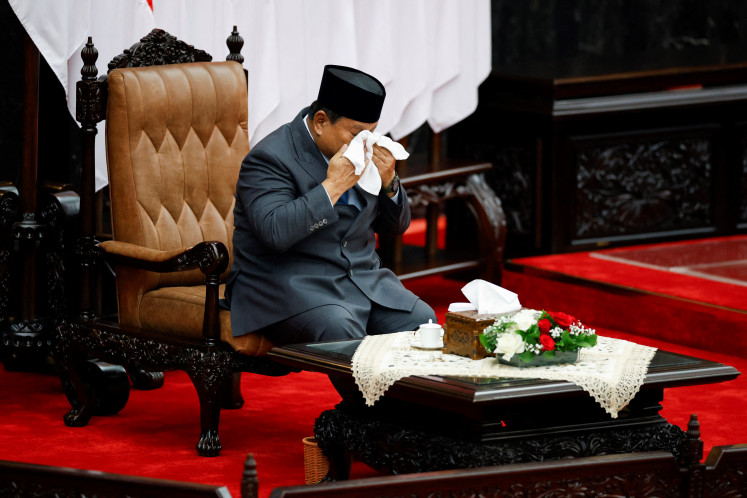Popular Reads
Top Results
Can't find what you're looking for?
View all search resultsPopular Reads
Top Results
Can't find what you're looking for?
View all search resultsA hard game to play
Many local developers struggle to find the necessary funding with many still relying on their own pockets or angel investors.
Change text size
Gift Premium Articles
to Anyone
I
ndonesia needs all the help it can get to accelerate its gaming industry development. However, acting as if the country can set a bunch of terms and pretend not to care if anyone follows through or not, will not be of much help.
That sums up the latest planned government regulation on the gaming industry that would block sales of foreign publishers unless they set up a local presence in Indonesia.
Publishers are companies that have enough resources to put finished games into the market and help developers reach out to gaming communities.
While it is true that foreign publishers could bring games from overseas developers into the Indonesian market, blocking them would also mean they would not be able to sell games produced by home-grown developers, especially to international audiences.
Local developers have voiced their concerns over the regulation, as many still rely on foreign publishers to release their games to consumers.
Moreover, games, like any other restricted goods, would eventually find their way into the Indonesian market by other methods, which justifies local developers' fears of potentially rising piracy rates in the country.
The government may have also overlooked the fact that publishers are also potential investors. In several cases, these companies provide funds to cover game development and marketing costs, allowing developers to focus on realizing their concept and design.
Games, especially those played on consoles and personal computers, can take years to develop and require a vast number of resources, ranging from voice actors and sound designers to writers and creative directors, compared with widely played mobile games that may require far fewer resources.
The Communications and Information Ministry realized in its study that many local developers are struggling to find the necessary funding, with many still relying on their own pockets or angel investors.
Indonesia has laid the groundwork to allow intellectual property to be used as collateral for bank loans, but its implementation remains questionable with financial institutions remaining reluctant to seize the opportunity.
Other hurdles hampering the domestic gaming industry include a lack of experience among local developers to match global players, which again could be addressed by working together with foreign publishers, as they could provide advice and know-how to meet their standards.
The last thing that we need is to see our talent and developers, especially those favored by foreign publishers, forced to leave Indonesia for the sake of more conducive gaming regulatory ecosystems.
Unlike other countries, Indonesia also lacks the means and incentives to boost the domestic gaming industry, such as tax holidays, which the Communications and Information Ministry also realized in its study. Obviously, this would pose the challenge of whether foreign publishers would be willing to comply.
Indonesia already has several titles that have been well well-received by international audiences, such as survival horror DreadOut from Bandung-based Digital Happiness, visual novel Coffee Talk from Tangerang-based Toge Productions and first-person action platformer Escape from Naraka from Yogyakarta-based Xelo Games.
Yet, the country still has a lot of work to do before it can actually produce a triple-A game, which is a title considered a blockbuster in the international video game community.
For the country to actually see its gaming industry take off will depend on whether the government can introduce a game-changer policy instead of things that will cause things to stagnate.
If done right, games will not just serve as mere entertainment for their audiences, but also pave the way for Indonesia to promote and popularize its own culture and history to international audiences like the Japanese and Western gaming industries did.
However, this will require the government to remember that the country cannot do this on its own and it requires the right environment so local developers can work together with their foreign partners in enhancing the prospective domestic gaming industry.











